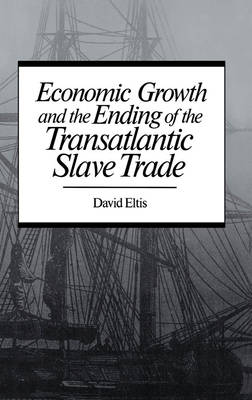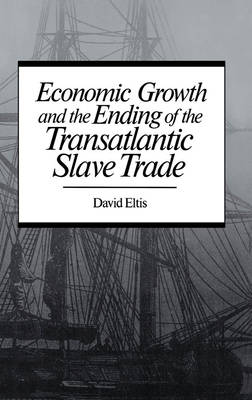
En raison d'une grêve chez bpost, votre commande pourrait être retardée. Vous avez besoin d’un livre rapidement ? Nos magasins vous accueillent à bras ouverts !
- Retrait gratuit dans votre magasin Club
- 7.000.000 titres dans notre catalogue
- Payer en toute sécurité
- Toujours un magasin près de chez vous
En raison de la grêve chez bpost, votre commande pourrait être retardée. Vous avez besoin d’un livre rapidement ? Nos magasins vous accueillent à bras ouverts !
- Retrait gratuit dans votre magasin Club
- 7.000.0000 titres dans notre catalogue
- Payer en toute sécurité
- Toujours un magasin près de chez vous
305,45 €
+ 610 points
Description
This watershed study is the first to consider in concrete terms the consequences of Britain's abolition of the Atlantic slave trade. Why did Britain pull out of the slave trade just when it was becoming important for the world economy and the demand for labor around the world was high? Caught between the incentives offered by the world economy for continuing trade at full tilt and the ideological and political pressures from its domestic abolitionist movement, Britain chose to withdraw, believing, in part, that freed slaves would work for low pay which in turn would lead to greater and cheaper products. In a provocative new thesis, historian David Eltis here contends that this move did not bolster the British economy; rather, it vastly hindered economic expansion as the empire's control of the slave trade and its great reliance on slave labor had played a major role in its rise to world economic dominance. Thus, for sixty years after Britain pulled out, the slave economies of Africa and the Americas flourished and these powers became the dominant exporters in many markets formerly controlled by Britain. Addressing still-volatile issues arising from the clash between economic and ideological goals, this global study illustrates how British abolitionism changed the tide of economic and human history on three continents.
Spécifications
Parties prenantes
- Auteur(s) :
- Editeur:
Contenu
- Nombre de pages :
- 434
- Langue:
- Anglais
Caractéristiques
- EAN:
- 9780195041354
- Date de parution :
- 11-06-87
- Format:
- Livre relié
- Format numérique:
- Genaaid
- Dimensions :
- 161 mm x 235 mm
- Poids :
- 893 g

Les avis
Nous publions uniquement les avis qui respectent les conditions requises. Consultez nos conditions pour les avis.






